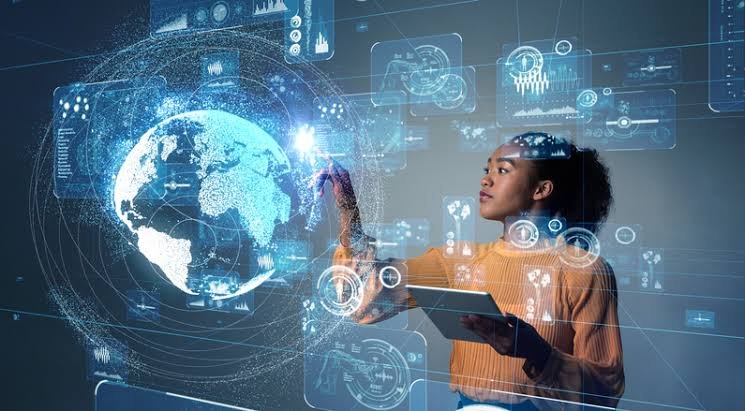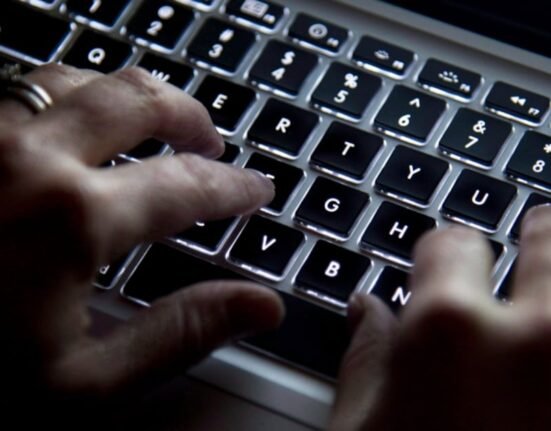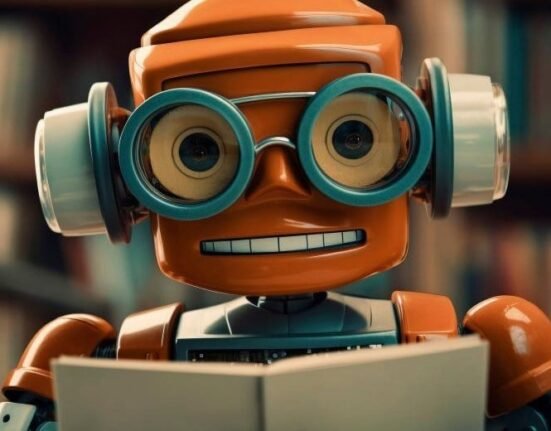and circulation of intellectual property and this use of technology raises some
very serious questions upon the issues of ownership, infringement and right to
license.
This edition would talk about the proper management of intellectual property in
the AI era including the issues of copyright, patents and trademarks. It
highlights the advantages, disadvantages and all the basic details related to
use of Artificial Intelligence in Copyright Infringement Detection.
Introduction
Artificial intelligence (AI) is a kind of technological development that refers
to the use of human intelligence by techno devices and machines such as
computers. Certain kinds of algorithms are developed to make our computers
perform those tasks which require the element of human intelligence. On the
other hand, copyright is a legal concept that allows us to make sure that our
original work does not get copied by any other person. This legal remedy allows
us to take action against those who try to steal the works originally done by
others. Indian courts have clearly stated that infringement occurs when an
essential element of copyrighted work gets copied.
Role of Artificial Intelligence in Infringement of Copyright
The use of AI in detection of copyright infringes is growing rapidly due to the
increase in growth of digital content in the market. Today if you see, there has
been a large demand of content writers in the industry and those people who can
help in protecting the originality of the content are also needed.
This demand requires the use of AI in fulfilling the right purpose. AI serves as
a tool for protecting the content made by these content creators in different
ways. If we talk about those essential ways in which AI helps us in this field
then one of the most important ways among them is Content Recognition Algorithm
that helps the editors and creators to identify the copied work due the
similarities between different documents, images, audios etc. These similarities
are detected by Artificial Intelligence. Next big thing it does is called
Pattern Recognition due to which it recognises the user behaviour and pattern of
content which has been copied from various websites and other sources.
These
were the two major techniques which are used by Artificial Intelligence to
identify the copied work, once such work has been identified then comes the next
big thing introduced to us by AI that is the feature of Automated Take down
Notices through which the AI automatically sends the take down notices to the
platforms who have uploaded the copied content on their websites. So, these
features have dual functioning that is both the recognition and the required
action which is to be taken on those who sell infringed content.
The High Court of Delhi has already held that broadcasting copyright sound
recordings without license amounts to infringement. The main reason behind the
use of such technology to detect the infringement, we would examine what are the
main copyright issues that occur when one person tries to copy the work of
another and portrays it as his own work. So, the major conflict that takes place
is regarding the ownership rights of the content i.e. because it is very complex
to decide and determine the ownership right of a work that is copied from some
other source or has been generated through the use of Artificial Intelligence.
However, we have such algorithms in AI that can easily trace the original
content but the concern arises when it comes to determining the ownership rights
of such work which has been totally generated through AI chat bots, who can we
consider the true owner of such work is still unanswered. The basic application
legal principles would suggest that the developer of such AI chat bots must keep
the ownership rights of such content with them.
Issues regarding the “Authorship”:
- In the battle of Copyright in Artificial Intelligence the main issue
was, who will be entitled with the Authorship of the AI generated content ?
Copyright laws provide rights to the authors and to the creators for their
original and exclusive work but if we talk about artificial intelligence the
content is owned by the machines. However,in the present laws related to copyrights, it includes
only humans as creators therefore machines are not considered as creators or as
authors. Hence the issue regarding the authorship of AI generated content is
still a debatable topic.
- After the lack of legal laws related to copyright, should Artificial
Intelligence be considered as the author or the owner of the creative work ?
This particular question still revolve around as The Copyright Act, 1957 the
states the definition of “author” means:
- In relation to a literary or dramatic work, the author of the work;
- In relation to a musical work, the composer;
- In relation to an artistic work other than a photograph, the artist;
- In relation to a photograph, the person taking the photograph;
- In relation to a cinematography film or sound recording, the producer;
- In relation to any literary, dramatic, musical or artistic work which is computer-generated, the person who causes the work to be created;
This definition didn’t include who can be the author hence, this ambiguity led to the
question unanswered.
Nexus between Artificial Intelligence and IP Laws
“The only constant is change” this famous quote by Heraclitus itself states a
lot about technology and its innovation. The impact of AI is very clear in this
present generation on one hand where IP laws are like rooted longstanding
practices that are focused on the process and enhancements on the other hand
Artificial Intelligence talks about innovation.
This generation is centered
around technology. The present role of AI is to shape the frameworks of IP laws
to build them more flexible and capable of evolving with the technological
advancements. On the other hand IP laws should include both person and
technology as a person so that both can be covered under IP laws and get
protected.
Unveiling the mysteries of Copyright in Artificial Intelligence
One of the remarkable case the ” Raghav Case”, this particular case deals with
parties the Raghav Technologies (plaintiff) .Here, RAGHAV is robust,
artificially intelligent, graphics and art visualiser it was named after the
owner Ragahv Gupta who was an engineer by profession(RAGHAV is an AI based app).
This particular case was revolving around the dispute that the content was
created by RAGHAV yet Mr.Sahni wanted to be an author of that work. Mr. Sahni
just gave the direction to RAGHAV and inserted two images, one was the base
image (that he clicked ) and other was “Starry work” that was created by Vincent
Van Gogh’s and created a new image known as “SUYAST”.
The major question that was put forward was who would own the “authorship” of AI
generated content and whether A.I Innovations had infringed the copyright laws ?
After analyzing the facts and issues of this case the ruling court examined the
nature of the A.I generated content with the copyrighted work, focusing that a
content can be a derivative and could be eligible for copyright laws. Therefore,
the court favoured Raghav Technologies and stated that A.I Innovations has
derived its content from Raghav Technologies and stated that it is very
difficult to differentiate between the work done by Sahni and by RAGHAV.
Moreover, many precedents were also established due to this case.It was a
notable judgement that had created an impact in the AI world. This case is the
perfect example of how the world is bridging the gap between tradition and
innovation.(How IP Laws are including AI).
Advantages of Artificial Intelligence:
Artificial intelligence is playing an important role in the world of the digital era. It not only transformed technology but also reshaped the industry across the world. It increased the growth of the economy and helped to enhance efficiency and productivity.
Therefore, some of the major advantages of artificial intelligence are listed below:
- Adaptability: AI goes hand in hand with time. It not only adapts things quickly but also finds the solution. It is very useful as it adapts the new infringement and helps the owner to take suitable action at the earliest instance. It identifies the new threat patterns and improves accordingly.
- Efficiency: It is one of the main reasons why it is useful as it saves one of the precious things of this era, and that is “time.” It can easily scan large data within seconds. It is more efficient than any other method of scanning. It saves time and increases the detection of copyright.
- Accuracy: It improves the overall growth and helps us to provide accurate results. It can perform multiple tasks at one time. This accuracy of AI not only saves our time but also provides us an opportunity to focus on more important things.
- Lesser Cost: Artificial Intelligence saves labor incentives and reduces the use of manual intervention.
- Scalability: It can handle a large amount of data and can process that data without any error. It monitors data across various platforms in the world.
Disadvantages of Artificial Intelligence:
We all are aware of a popular phrase “double-edged sword” which means that everything has its two sides, one denoting the positives and the other the negatives. Hence, here we will encounter some drawbacks of AI:
- Privacy Issues: This is one of the major drawbacks of Artificial Intelligence that is still debatable. There should be a balance between Intellectual Property Rights and the protection of privacy rights. The personal data of the user should be monitored and kept safe. There are few copyright enforcement techniques that involve the tracking of data of their users. Privacy, which is the major concern, is still struggling. They keep a check on browsing history, profiles, and many more that raises questions about the violation of privacy issues.
- Ethical Concerns: Fairness, accountability, and protection of copyright are very important. We fully rely on AI, due to which we expose all our data to AI software, raising privacy concerns. Preservation of individual rights and implementation of robust data protection is a must.
Conclusion
The balance of everything is very important in life. Be it nature, tradition or
technology. The clash between the intersection of copyright in artificial
intelligence highlights the complexity of balancing Artificial Intelligence and
Copyright. On one hand where intellectual property rights safeguards innovation
and creativity while on the other hand AI being efficient and accurate to detect
infringement.
However, both of them raise questions regarding the privacy issues and ethical
principles. Where we talk about fairness and accountability. Transparency of
personal details can cause us major problems in future. Moreover, developing and
maintaining the AI standards will require a good capital investment and
expertise. If copyright in AI would be implemented then people can also use it
for malicious purposes that will harm the society and would be against natural
justice.
Moreover, the ethical use of AI will help us to address the major problems
present in society. Hence people related to this field should implement the use
of AI in an ethical manner and should take care of the complex issues. A
powerful tool like AI should be implemented carefully and should ensure fair
use. There should be a balance that should be looked at and the use of AI in
copyright infringement should be promoted with fairness and accountability where
we respect the rights of the individuals.
References:
- https://or.niscpr.res.in/index.php/JIPR/article/download/1205/2743/37858
- https://www.researchgate.net/publication/376885311_Artificial_Intelligence_and_Intellectual_Properties_Legal_and_Ethical_Considerations
- https://www.wipo.int/wipo_magazine/en/2017/05/article_0003.html
- https://www.managingip.com/article/2a5czmpwixyj23wyqct1c/exclusive-india-recognises-ai-as-co-author-of-copyrighted-artwork
- https://ksandk.com/intellectual-property/divergent-copyright-recognition-ai-generated-works-sahnis-case-us-vs-india/#background-suryast-and-uscos-decision
- https://www.barandbench.com/law-firms/view-point/intersection-intellectual-property-rights-ai-generated-works-part-i
- https://www.livelaw.in/law-firms/law-firm-articles-/artificial-intelligence-intellectual-property-indian-copyright-act-singhania-co-llp-238401







